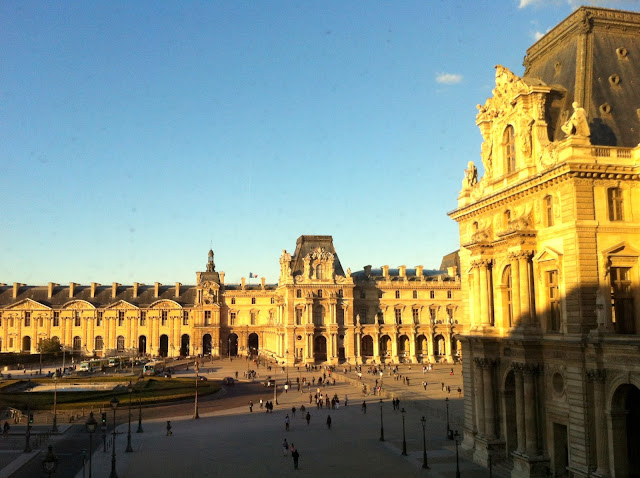 |
| Aristotle with the Bust of Homer, Rembrandt, 1653, Metropolitan Museum of Art |
I'm revising notes and essays from University Humanities courses as I've forgotten a lot of what I have learned and I find value in periodic philosophical inventory as experience tends to evolve perception, especially that which exists when one is 19 or 20 years old. Although I hold a degree in Computer Information Systems, my love has always resided with Philosophy and History and I supplemented my less than stellar marks in Computer Programming courses with those from these fields.
From the Archives (4th year Undergrad): A Summary of a chapter from Alasdair MacIntyre's After Virtue
Alasdair MacIntyre was born in Glasgow, Scotland in 1929. While attending Queen Mary College, the University of Manchester, and Oxford University, he encountered Marxist philosophy to which he initially subscribed before ultimately rejecting it and all other theories of modern Liberal Individualism in favor of classical Aristotelian Ethics. Raised Protestant, MacIntyre converted to Roman Catholicism in the 1980s and adopted the philosophy of Thomas Aquinas.
The Virtues, the Unity of Human Life and the Concept of a Tradition (pdf)
MacIntyre disagrees with both the modern Atomistic and Existential Philosophies that human life is “broken into a variety of segments, each with its own norms and models of behavior,” or that “human life is composed of discrete actions which lead nowhere, which have no order.” Instead MacIntyre believes that human life is a narrative, subject to temporal status and relativity to those other “narrative co-authors” we encounter.
First, MacIntyre states that all actions and behavior are products of their intentions, which “need to be ordered both casually and temporally and both orderings will make references to settings, references already made obliquely by elementary terms” and also in “reference to their role in the history of the setting or settings to which they belong.” MacIntyre is asserting that all actions are definable by their primary and secondary goals, and their place on the timeline of settings of which they are a part.
Next MacIntyre discusses his ideas of actions that are “unintelligible,” or actions which occur naturally. Intelligible actions create a sort of human life narrative, in which every conversation, every
mutatis mundi, is a chapter in the dramatic story we both write for ourselves and in which we become actors. Our narratives have beginnings, middles, and ends, and overlap into subplots intertwining with the narratives of many others. “Someone may discover that he is a character in a number of narratives simultaneously, some embedded in others.” MacIntyre also states that our role in each narrative may be constrained by entering into a plot we did not design for ourselves but are none the less a part….“each of us being a main character in his own drama plays a subordinate part in the drama of others, and each drama constrains the other.” MacIntyre also believes we are not exempt from the history of our identities. “The characters of course never start literally
ab initio; they plunge in
media res, the beginnings of their story already made from them by what and who has gone before.” We are shaped by every chapter in the history of our identity which has occurred until the present.
MacIntyre disagrees with many other philosophers. Marx, he states, believes that man’s actions are predictable, but in a dramatic narrative, MacIntyre argues that humans will act for the future – the form of
telos – and because of this, we never know what will happen next. Sartre believes human actions are existential, having no order and lead nowhere. In contrast, MacIntyre believes that all of our actions are interconnected via personal narrative. MacIntyre also argues against Kant’s Categorical Imperative because he asserts “when men and women identify what are in fact their partial and particular causes too easily and too completely with the cause of some universal principle, they usually behave worse than they would otherwise do.” MacIntyre believes that a universal principle would pull people away from their moral identities and membership in a community of personal narratives.
MacIntyre defines virtues as dispositions which make for success in many situations; dispositions which create success in only one or a few situations, he claims “are professional skills professionally developed in those situations where that can be effective. “Virtue,” he states, “is intelligible only as a characteristic of unitary life.” Human life is a quest – or a compilation of our goals and the hardships endured while attempting to achieve them – and virtues are dispositions which will help us on our quest for life. “The good life,” he argues, “is the life spent in seeking the good life for man.” MacIntyre endorses Aritsotle’s virtues and adds the virtue of “having an adequate sense of traditions to which one belongs or which confront one.” The breakdown of society is caused by the lack of exercising virtue. Because of Individualism, MacIntyre concludes virtue has transformed.
MacIntyre believes that ethics and morality cannot be based upon Kantian Universal Maxims and Categorical Imperatives because of the unique set of inter-weaving personal narratives we encounter and utilizes a classical view of virtue to illustrate his ethical belief.





































